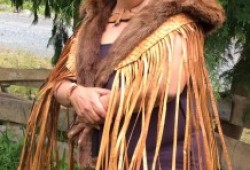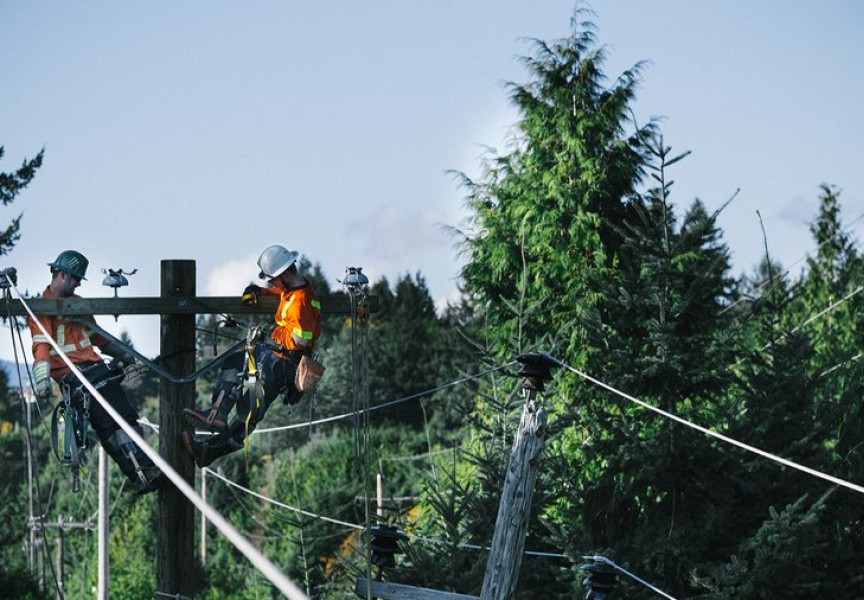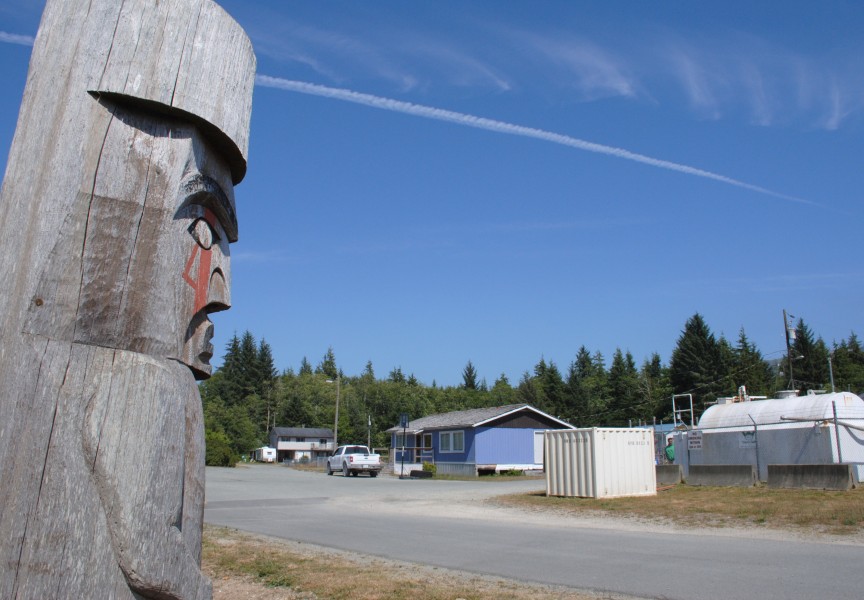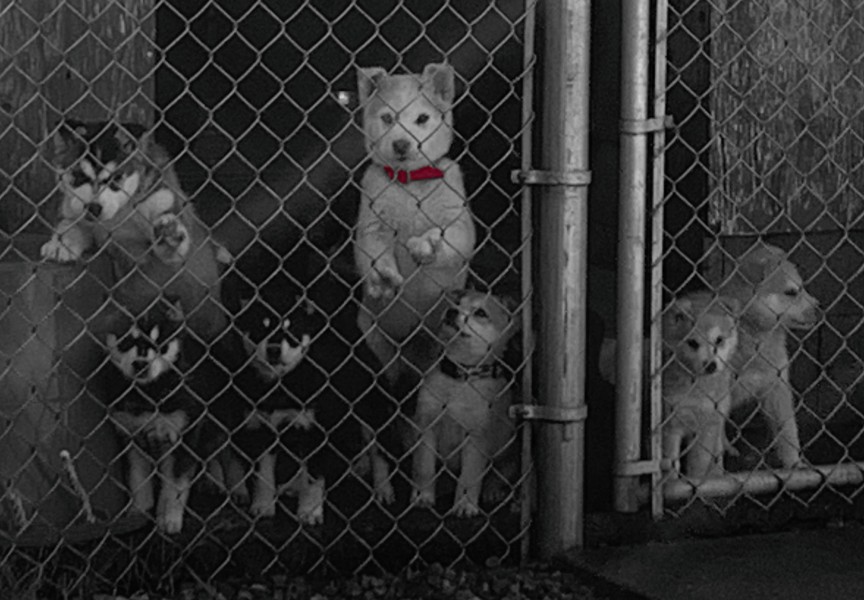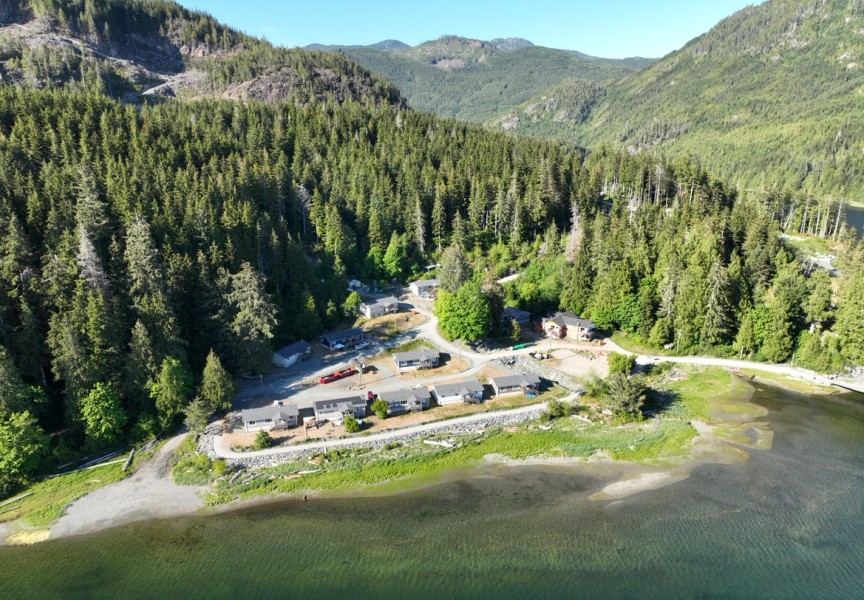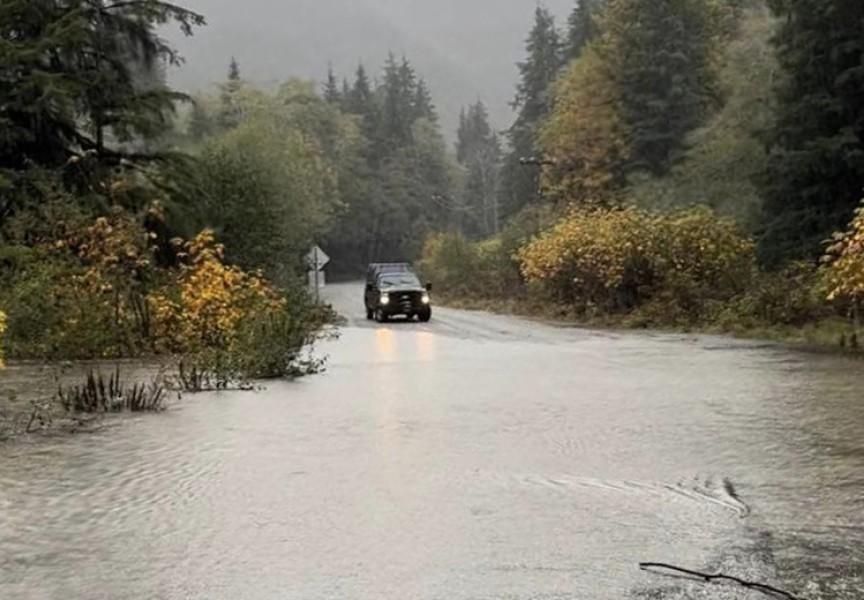As a young girl, Gina Laing spent her days in the remote village of Ethlateese living off the land. Considered the wettest place in North America, Ethlateese is tucked away in the Uchucklesaht Inlet. Surrounded by uninterrupted forest, the tiny village looks as though it is about to be swallowed whole by the surrounding mountains.
It was the birthplace of Laing’s father, who lived there his entire life – the way his mother had before him.
Those deep ancestral ties have connected Laing to the quiet piece of land ever since her earliest memories.
“It was a really healthy way to grow up,” she said.
Back then, Laing’s diet consisted of whatever the land and sea provided. Her father hunted wild game and foraged for clams, while Laing’s grandmothers took her out to pick fresh berries.
“When the tide was out, your table was set,” said Laing’s brother and Uchucklesaht elected chief, Charlie Cootes. “It was one of the best places to live [and] best place to grow up as a child.”
All of that changed when they were picked up by boat to go to residential school.
“[The government] was successful in their mandate to strip us from our culture, our traditions, our language and to alienate [us] from our families,” said Cootes. “It takes a long time to come back from that.”
Now, only three members remain living in the village. Without access to health care, education and a lack of economic opportunities, many were forced to relocate.
Despite that, Laing stayed.
“It’s part of our history,” she said. “Part of our culture, part of our everyday living.”
But like so many others, Laing eventually found herself in Port Alberni. Her life was uprooted five years ago when she lost her home in a house fire and had nowhere else to go.
The transition hasn’t been easy for the 73-year-old, who misses the sounds of crows trying to break open muscles on the top of her roof.
“I’m living in a house that’s not mine,” she said. “It’s so different – the atmosphere is completely different. I just miss home.”
As a way to try and re-establish the village, Uchucklesaht chief administrative officer, Scott Coulson, acquired federal funding through Aboriginal Affairs and Northern Development Canada to renovate the existing homes in Ethlateese.
After an initial analysis was done on the remaining homes, it was determined they were uninhabitable.
When Indigenous Northern Affairs Canada redeveloped the village around 40 years ago, they built individual septic tanks for each home in the floodplain, said Coulson.
“[The septic tanks] were all decomposed and useless,” he said. “They were actually falling into the ground, so we had to redevelop a septic system for the entire village.”
The renovation project quickly turned into a replacement project and within nine months, six new homes have been built and will be ready before Christmas.
One of them is for Laing.
“I’m so grateful,” she said. “It’s going to be so peaceful and it’s going to be so nice to hear things again.”
Laing said she looks forward to returning to sounds of “seagulls squawking over leftovers down on the beach,” and to the loud barks from sea lions when the fish are in.
An additional eight homes are scheduled for completion next year, which will increase the village’s population by four or five hundred per cent, said Coulson.
“I think everybody’s pretty excited about it,” he said. “It’s been 10 years since we’ve seen people coming back and utilizing the area for fishing and now they’ll be able to do that again.”
When Laing thinks back to her childhood, it was Ethlateese that got her through some of her darkest days. The Uchucklesaht elder attended the Alberni Indian Residential School until she was 16 years old. For 10 years, she was only able to return to the village during the summer months.
“Going to residential school I always thought I was just a burden to society,” said Laing.
But during those brief visits to Ethlateese, Laing said she felt like she belonged.
“It’s just a part of us,” she said. “It’s home – it’s always been home.”


